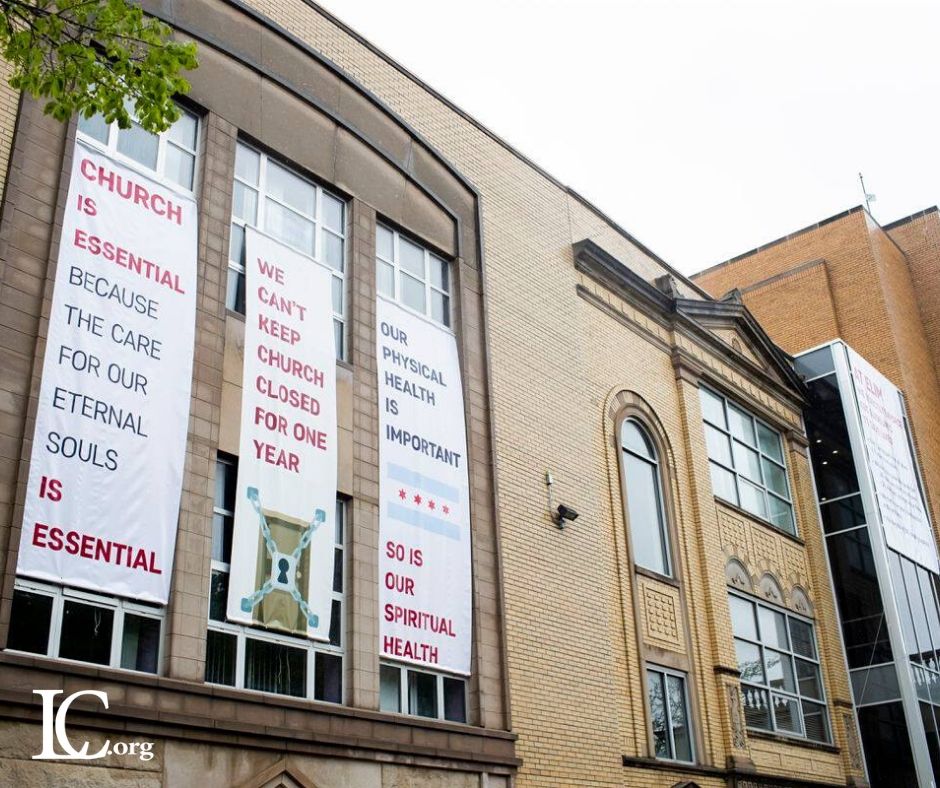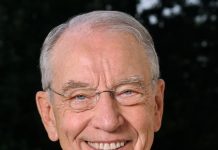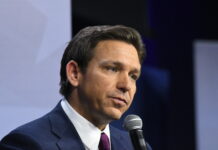Liberty Counsel will file an en banc petition requesting that the entire panel of judges review the case after a three-judge panel of the Seventh Circuit Court of Appeals denied the preliminary injunction on behalf of Elim Romanian Pentecostal Church and Logos Baptist Ministries in their federal lawsuit against Illinois Gov. J.B. Pritzker for his unconstitutional executive orders discriminating against churches.
Depending on the result of the petition for en banc review, Liberty Counsel will also consider filing a petition for cert requesting Supreme Court review at the appropriate time.
This decision now conflicts with the two 3-0 rulings Liberty Counsel obtained at the Sixth Circuit Court of Appeals on behalf of the Maryville Baptist Church. This also conflicts with the Fifth Circuit Court of Appeals. However, the Ninth Circuit Court of Appeals ruled 2-1 against a church on an emergency appeal. Thus, the Circuit Courts of Appeal are now split 2-2, which sets up an eventual case for Supreme Court review.
On the first issue before the court of appeals, the three-judge panel ruled that the case is not moot. While Gov. J.B. Pritzker removed ALL restrictions on churches and houses of worship when he was called to account to the Supreme Court, the court ruled that the governor failed to make it absolutely clear that he would not return to the prior executive order.
Regarding the second issue of the First Amendment, the court ruled that the 10-person limit did not violate the religious freedom of the churches. The court began by deciding what secular gatherings were comparable to church gatherings and it also reasoned that churches are not being treated worse than theaters or concert halls. The court did think that big box centers, supercenters, warehouses, or meatpacking plants were not similar to church gatherings but it stated it did “not deny that warehouse workers and people who assist the poor or elderly may be at much the same risk as people who gather for large, in-person religious worship. Still, movies and concerts seem a better comparison group, and by that standard the discrimination has been in favor of religion.”
Yet while workers in these non-religious gatherings face greater exposure for longer periods of time than those socially distanced in a church service, the governor’s executive orders discriminate in another way, as listed below:
Businesses and religious and secular nonprofit organizations, including food banks, when providing food, shelter, and social services, and other necessities of life for economically disadvantaged or otherwise needy individuals, individuals who need assistance as a result of this emergency, and people with disabilities (emphasis added).
But to this argument, the court wrote the following:
Those activities must be carried on in person, while concerts can be replaced by recorded music, movie-going by streaming video, and large in-person worship services by smaller gatherings, radio and TV worship services, drive-in worship services, and the Internet. Feeding the body requires teams of people to work together in physical spaces, but churches can feed the spirit in other ways.
Churches can feed and shelter overnight an unlimited number of people, but if the pastor leads a worship service or prayer, the number must be reduced to 10 people. The court brushed off this obvious discrimination by stating such services “must” be carried out in person. But, tellingly, the court ignored the fact that the same paragraph quoted above also permits an unlimited number of people in a church to provide for “other necessities of life.” Shockingly, neither Gov. Pritzker nor this court considers worship to be among the “necessities of life.” Such a conclusion is beyond the competency or authority of a court to decide the manner, form, or necessity of worship.
Liberty Counsel Founder and Chairman Mat Staver said, “This case is far from over. The pastors and the Romanian churches are resolved to continue to fight for religious freedom. Our next step will be to ask a full panel of judges to review the case. This case and the conflicts now among the courts of appeal also provide an opportunity to ask the Supreme Court to review the matter at the appropriate time. We will continue to pursue a decision that is consistent with the First Amendment.”
















